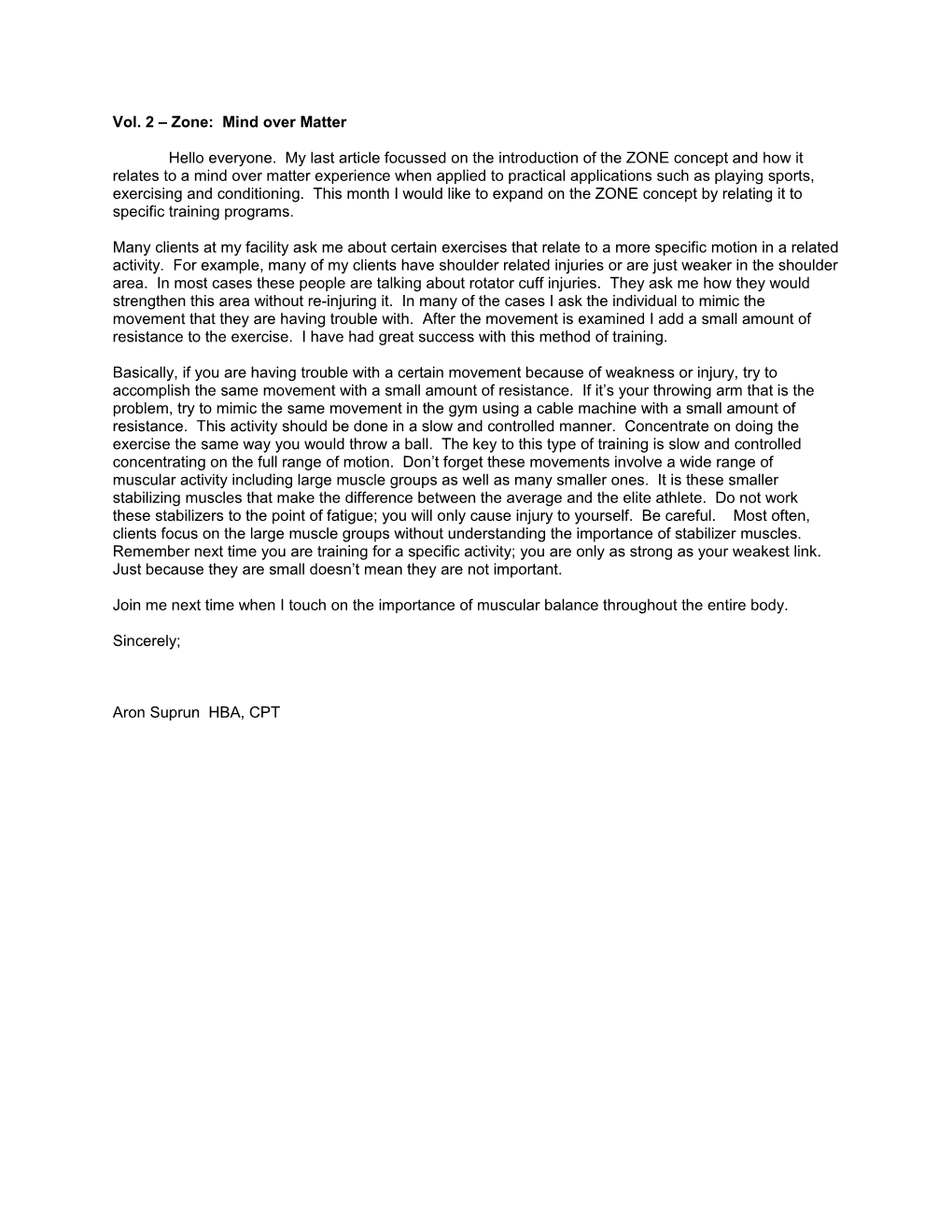Vol. 2 – Zone: Mind over Matter
Hello everyone. My last article focussed on the introduction of the ZONE concept and how it relates to a mind over matter experience when applied to practical applications such as playing sports, exercising and conditioning. This month I would like to expand on the ZONE concept by relating it to specific training programs.
Many clients at my facility ask me about certain exercises that relate to a more specific motion in a related activity. For example, many of my clients have shoulder related injuries or are just weaker in the shoulder area. In most cases these people are talking about rotator cuff injuries. They ask me how they would strengthen this area without re-injuring it. In many of the cases I ask the individual to mimic the movement that they are having trouble with. After the movement is examined I add a small amount of resistance to the exercise. I have had great success with this method of training.
Basically, if you are having trouble with a certain movement because of weakness or injury, try to accomplish the same movement with a small amount of resistance. If it’s your throwing arm that is the problem, try to mimic the same movement in the gym using a cable machine with a small amount of resistance. This activity should be done in a slow and controlled manner. Concentrate on doing the exercise the same way you would throw a ball. The key to this type of training is slow and controlled concentrating on the full range of motion. Don’t forget these movements involve a wide range of muscular activity including large muscle groups as well as many smaller ones. It is these smaller stabilizing muscles that make the difference between the average and the elite athlete. Do not work these stabilizers to the point of fatigue; you will only cause injury to yourself. Be careful. Most often, clients focus on the large muscle groups without understanding the importance of stabilizer muscles. Remember next time you are training for a specific activity; you are only as strong as your weakest link. Just because they are small doesn’t mean they are not important.
Join me next time when I touch on the importance of muscular balance throughout the entire body.
Sincerely;
Aron Suprun HBA, CPT
